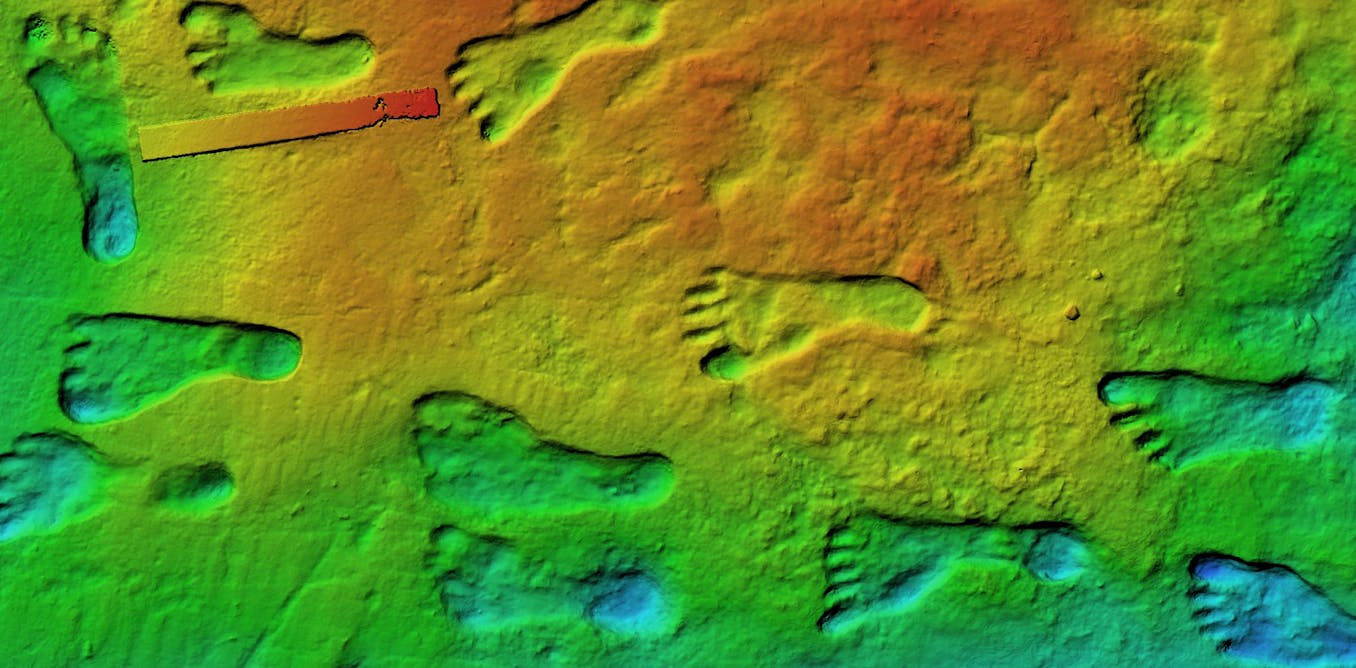Prehistoric cave painters might have been ‘high’ on oxygen deprivation – new study
It's possible that low oxygen levels in caves produced hallucinations – but that doesn't explain the majority of prehistoric art.
Paul Pettitt, Professor in the Department of Archaeology, Durham University •
conversation
April 19, 2021 • ~8 min
April 19, 2021 • ~8 min
Prehistoric communities off the coast of Britain embraced rising seas – what this means for today's island nations
New research has mapped sea-level rise around the Isles of Scilly over the last 12,000 years.
Robert Barnett, Lecturer in Geography, University of Exeter •
conversation
Nov. 4, 2020 • ~24 min
Nov. 4, 2020 • ~24 min
Fossil footprints: the fascinating story behind the longest known prehistoric journey
Some 13,000 years ago, an adult carrying in a child walked 1.5km kilometres in mud at great speed in the presence of hungry predators.
Sally Christine Reynolds, Principal Academic in Hominin Palaeoecology, Bournemouth University •
conversation
Oct. 9, 2020 • ~6 min
Oct. 9, 2020 • ~6 min
Prehistoric desert footprints are earliest evidence for Homo sapiens on Arabian Peninsula
These findings represent the earliest evidence for Homo sapiens on the Arabian Peninsula, and demonstrates the importance of Arabia for understanding human prehistory.
Richard Clark-Wilson, PhD Candidate in Geography, Royal Holloway •
conversation
Sept. 18, 2020 • ~8 min
Sept. 18, 2020 • ~8 min
Prehistoric human footprints reveal a rare snapshot of ancient human group behavior
The footprints of over 20 different prehistoric people, pressed into volcanic ash thousands of years ago in Tanzania, show possible evidence for sexual division of labor in this ancient community.
Briana Pobiner, Research Scientist and Museum Educator, Smithsonian Institution •
conversation
May 14, 2020 • ~8 min
May 14, 2020 • ~8 min
/
1






